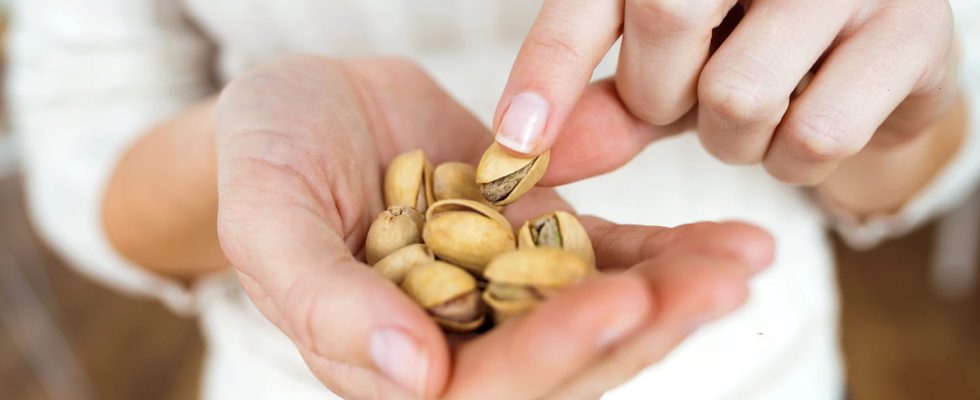Pistachios are filling and contribute to good cardiovascular health, provided you eat the right quantity, assures our nutritionist.
Pistachios are part nutswith walnuts, hazelnuts, almonds, pecans, cashews… “They have approximately the same nutritional profile as other nuts, with a wealth of minerals and trace elements, particularly in potassium, phosphorus, magnesium, iron, copper and good fats. Pistachios are a little higher in protein than other nuts“, explains Dr Jacques Fricker, a nutritionist, straight away. Several studies have shown that these fruits are interesting for the heart, the vessels (with an effect on high blood pressure, diabetes or cholesterol), the prevention of certain cancers (breast cancer, prostate cancer, colon cancer) or the brain (memory, morale, etc.). However, “It’s not because it’s good for your health that you can eat it as much as you want.“, he wants to clarify.
Can you eat pistachios every day?
Nuts can definitely be eaten dailyprovided you eat it in reasonable quantity. “The ideal is to vary the nutsalternating walnuts, hazelnuts, pistachios, almonds…advises our interlocutor. For example, one day we eat a portion of nuts, the next day a portion of almonds, the next day a portion of pistachios… We don’t add up the portions in the same day!“
How much to eat per day? Do they make you gain weight?
“If we like their taste, we would benefit from eating about 15-20g nuts per day, or about fifteen unsalted pistachios“, replies the nutritionist. As with all dried fruits, the consumption of pistachios must be limited because they are calories(about 100 calories for a 20g serving of pistachios), which is “as high in calories as milk chocolate for example“. Naturally, everything is a question of moderation: if you eat it compulsively, there is a risk of weight gain. “The risk is even higher if you take salted nuts (“aperitif mix” type) because salt is addictive“, he continues.
When to consume them?
Pistachios are satiating : it can be interesting to consume them between meals (mid-morning or afternoon snack) or as a dessert (in a fromage blanc or on a compote for example) because they do not cause a high spike in blood sugar nor any cravings one or two hours after eating it. “They are also interesting as an alternative to aperitif cakes before a meal or sprinkled on a salad“, explains Dr. Fricker.
